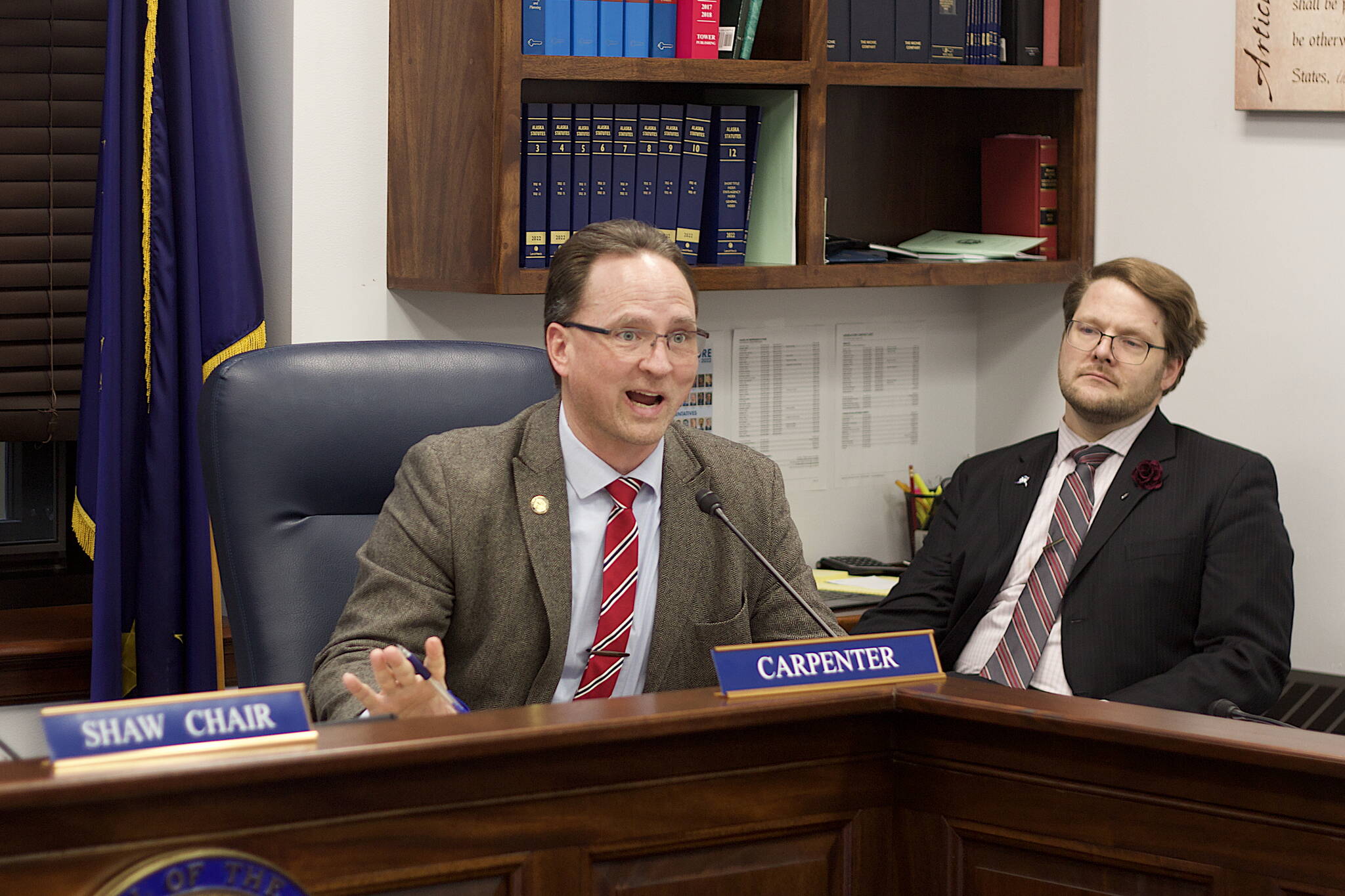Three-term Nikiski Rep. Ben Carpenter is right, the state needs a sustainable, long-term fiscal plan. Give him credit for raising the issue. Talk of a balanced fiscal plan has lingered since 1990 — before several of today’s legislators were even born.
The accompanying discussion about diversifying Alaska’s economy has lasted even longer, ever since the first barrels started flowing from Prudhoe Bay in 1977 and we tried using the riches to expand the state’s economy and job opportunities beyond oil.
But unless new business activity produces oil, any new industry or commercial enterprise does little to nothing to add revenue to the state, which pays for education, roads, the courts and so much more. Without a broad-based tax, such as a state sales or income tax, more jobs and more people needing more public services are a loser for the Alaska treasury, which pays much of the cost of those services.
It’s called the “Alaska Disconnect” — economic activity that costs more than it produces.
It’s not anti-development, it’s just a failing fiscal structure that spends more on services with nothing coming in to pay the higher bills.
Carpenter understands the disconnect, which he addressed in his legislative proposals. And he is absolutely right, everyone should contribute to the solution.
But where his plan misses the mark is in the details and its unfairness. He proposes a state sales tax, piled on top of local taxes in more than 100 cities and boroughs, along with a significant reduction in the state tax on corporate profits. That sounds about as equal as heads I win, tails you lose.
His corporate tax reduction could cost the treasury an estimated $330 million a year, while his sales tax could raise twice that much. His plan would merely shift a lot of the tax burden from corporations to people.
While slashing the tax on corporate profits, Carpenter proposes imposing sales taxes on food, medicines and many other essential goods and services often exempted from tax. Yes, he is right, every member of the state’s fiscal house should help pay to close the gap between revenues and expenses, but that pie should be sliced fairly — and this isn’t even close.
At last month’s hearing in the House Ways and Means Committee, chaired by Carpenter, Anchorage Democratic Rep. Andrew Gray noted that without a sales tax exemption on food, residents in rural Alaska would pay a disproportionate share of the tax on their expensive groceries.
“If people in rural Alaska are paying twice as much for their groceries, they will be paying twice as much of that tax,” he said.
Carpenter’s answer was that the Legislature could investigate ways to reduce the cost of a gallon of milk in rural Alaska, such as improving transportation.
Unless he wants to subsidize barge service and air freight flights, that is a useless answer.
The Kenai Peninsula Republican says his sales tax would be just one piece of a long-term fiscal plan, along with a spending cap on the state budget and cementing the Permanent Fund dividend into the Alaska Constitution. Not just guaranteeing a PFD in the constitution, but hard wiring the formula at such a high amount that it would add several hundred million dollars a year to the state budget deficit.
Let’s see if I understand the math: Spend more on the dividend than the budget can afford, cut corporate taxes in hopes of attracting new businesses that will need more state services, and help pay for everything with a sales tax?
The numbers don’t add up. It’s a plan, but not a good one.
• Larry Persily is a longtime Alaska journalist, with breaks for federal, state and municipal service in oil and gas, taxes and fiscal policy work. Columns, My Turns and Letters to the Editor represent the view of the author, not the view of the Juneau Empire. Have something to say? Here’s how to submit a My Turn or letter.

